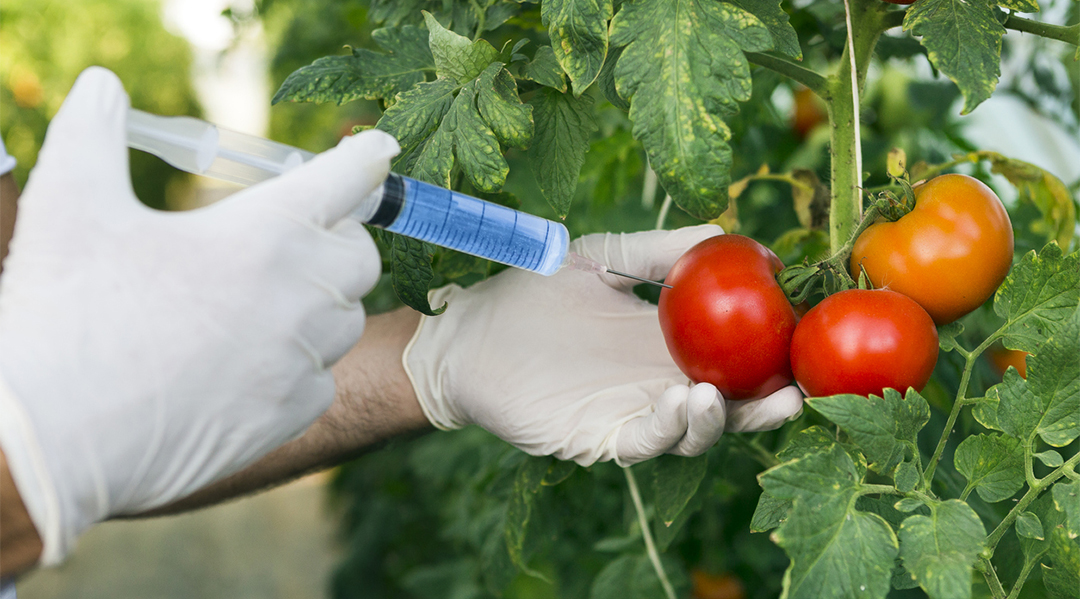Roundup Ready Canola GMO Testing
The Roundup Ready Canola GMO (Genetically Modified Organism) testing service is a critical component in ensuring the integrity and compliance of agricultural products. This service, provided by our accredited laboratory, focuses on detecting the presence of Aquafomes sp. genes specifically associated with Roundup Ready canola varieties. Our robust analytical methods are designed to meet stringent international standards such as ISO 15683-2 and EU Regulation (EC) No 1829/2003, ensuring accuracy and reliability in GMO testing.
The process begins with the collection of plant samples, which can be seeds, leaves, or any other relevant part. Samples are then processed to extract DNA using enzymatic methods followed by phenol-chloroform extraction techniques. This ensures that we have a pure sample for analysis. The extracted DNA is analyzed using quantitative real-time PCR (qPCR), a highly sensitive and specific technique capable of detecting even trace amounts of the target gene.
Our laboratory uses state-of-the-art instrumentation, including ABI 7500 Real-Time PCR Systems, which provide precise data on the amplification efficiency and specificity of the test. The qPCR results are compared against standard curves generated with known concentrations of the target gene to determine the presence or absence of GMO content in the sample.
For quality managers and compliance officers, this service is essential for ensuring that products meet regulatory requirements. For R&D engineers, it provides critical insights into genetic modifications and their stability over time. Procurement professionals benefit from this testing by verifying the authenticity of canola seeds or oil batches, avoiding potential legal issues and maintaining brand integrity.
Our approach to GMO testing is not only about compliance but also about sustainability. By accurately identifying genetically modified organisms, we contribute to responsible agricultural practices that ensure food safety and environmental protection.
- ISO 15683-2: Standard for the detection of specific transgenic events in plants.
- (EC) No 1829/2003: Regulation on genetically modified organisms, ensuring proper labeling and traceability.
- ABI 7500 Real-Time PCR Systems: Industry-standard equipment for accurate qPCR analysis.
We pride ourselves on delivering comprehensive reports that include detailed information about the testing process, results, and any potential deviations from expected outcomes. This transparency is crucial for stakeholders who need to make informed decisions regarding their agricultural practices and product offerings.
Industry Applications
The Roundup Ready Canola GMO Testing service has numerous applications across the agricultural industry, primarily aimed at ensuring compliance with regulations and maintaining market integrity. Quality managers rely on this testing to verify that canola products meet specified standards, while compliance officers use it to ensure adherence to international laws regarding genetically modified organisms.
R&D engineers benefit from our services by gaining insights into the stability of genetic modifications over time, which is crucial for long-term agricultural sustainability. Additionally, this testing supports the development of new varieties that can withstand herbicides like glyphosate, a key component in Roundup Ready technology.
For procurement professionals, accurate GMO testing ensures the authenticity and quality of purchased seeds or oil batches. This helps prevent contamination issues and avoids potential legal disputes with suppliers or customers. By using our service, they can ensure their supply chains are compliant and sustainable.
The precision and reliability of our testing methods make it an indispensable tool for all sectors involved in agricultural production and distribution. Our commitment to providing accurate and timely results supports the overall goal of responsible agricultural practices.
International Acceptance and Recognition
- ISO 15683-2: This international standard is widely accepted in Europe for detecting specific transgenic events in plants. Compliance with this standard ensures that our results are recognized globally.
- (EC) No 1829/2003: The European Union's regulation on genetically modified organisms mandates proper labeling and traceability, which we fully adhere to through our testing service.
- United States Department of Agriculture (USDA): Our methods are also compliant with USDA regulations, ensuring that our results meet the requirements for importation and exportation of agricultural products.
- Australian Government Standards: Compliance with Australian standards ensures that our testing is recognized in this market as well.
- United Nations Food and Agriculture Organization (FAO): Our service aligns with FAO guidelines, promoting responsible agricultural practices globally.
- World Trade Organization (WTO): By adhering to WTO rules on technical barriers to trade, we ensure that our results are accepted internationally without hindrance.
The widespread acceptance of these standards across multiple countries underscores the importance and reliability of our Roundup Ready Canola GMO Testing service. This global recognition ensures that producers can confidently use our services for compliance with international regulations.
Use Cases and Application Examples
One common scenario where this testing is crucial involves seed suppliers who need to ensure the purity of their canola seeds before they are distributed to farmers. Another example is in processing plants that handle large volumes of oil, ensuring that the final product does not contain unintended GMO contamination.
A third use case involves contract farming agreements, where both parties agree on specific genetic modifications to be present or absent in the crop. In these instances, our testing provides a neutral third-party verification of compliance. Another application is in research and development projects focused on developing new herbicide-resistant canola varieties. Our service helps researchers understand how well their modifications are performing under real-world conditions.
For quality assurance teams, this test ensures that the products they release to market meet all necessary standards. In addition, it allows them to track changes in genetic modification over time, which is vital for maintaining product integrity and customer trust.





